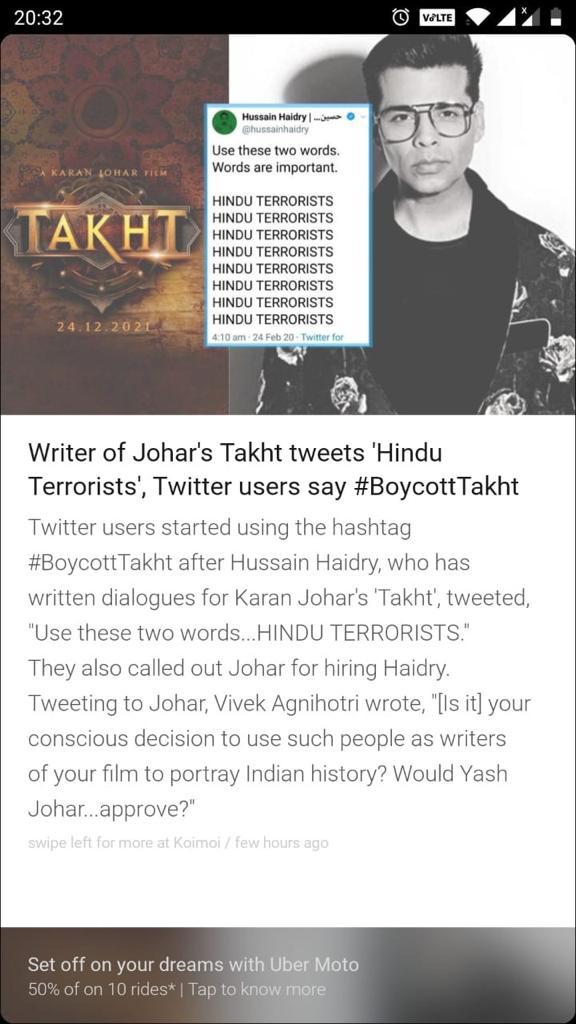By Laraib Fatima and Aafreen Khan, TwoCircles.net
The internet is no stranger to trolls and abuse and is a powerful tool in the hands of online mobs. Recently, a smear campaign was run by OpIndia to vilify Hussain Haidry, a poet and lyricist. “The online mob started a hashtag to boycott my film. Eventually, I had to delete my Twitter account because people were threatening the director as well as me,” Haidry recounts.
It becomes scary because the troll army consists of real mobs who threaten you. “My notification bar exploded. People who were trolling me have many followers and countering them comes with the fear of being attacked,” Haidry added.
This notion is a prime example of call-out culture which usually constitutes a form of social boycott. It fosters the idea of publicly shaming and cancelling each other for possessing and articulating different beliefs.
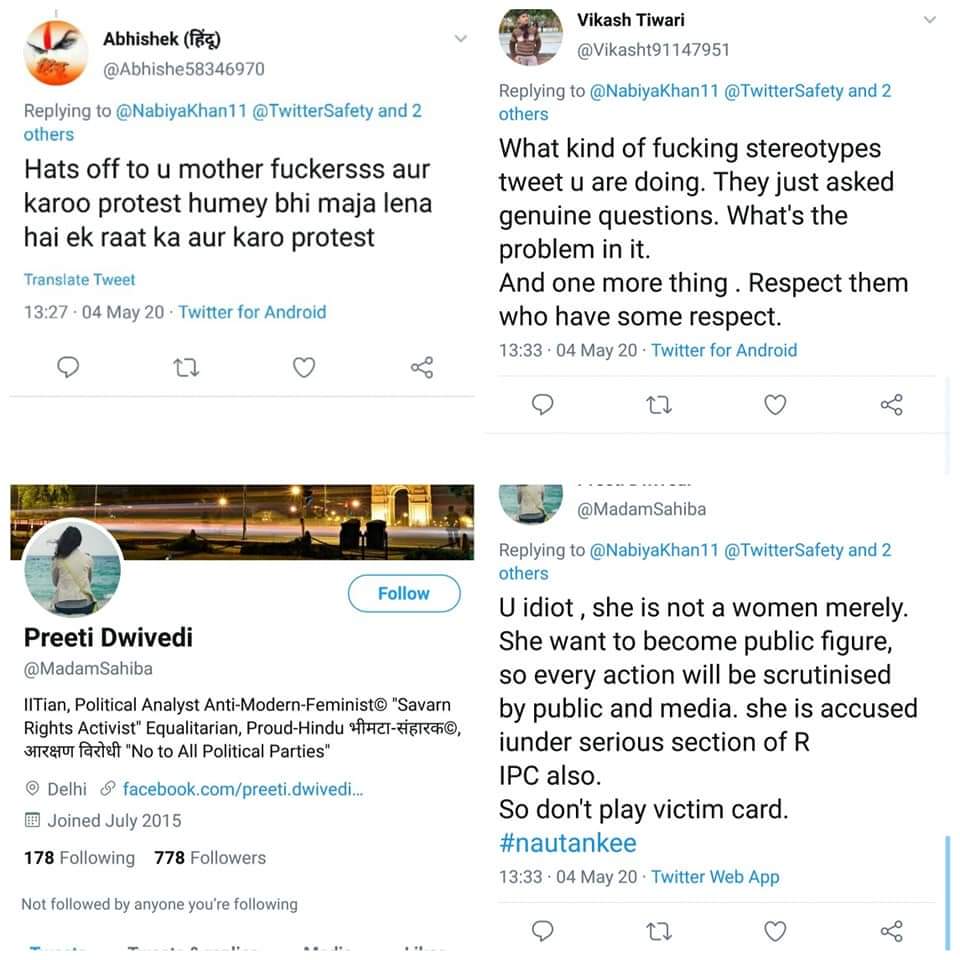
Social ostracization of targeted communities and people over the internet has become a trend. The online mob gravitates towards people who do not speak in line with their ideology. All you need is a keyboard and a few followers, but the consequences for those targeted are devastating.
“When I gave a speech during the anti-CAA protest and urged students not to build the protest on religious lines, the IT cell twisted my words, shared a doctored and hateful video of my speech,” says Arfa Khanum, an Editor with The Wire.
The online trolling has shown that people who disagree and take a stand against the ruling regime should be prepared for the ruthless harassment snowball that comes in their way. The trolling continues even if they express opinions or post a harmless picture of a kitten.
Through some cruel incidents of hate, troll, and abuse, this article tries to comprehend the differences in the barrage of threats various people suffer.
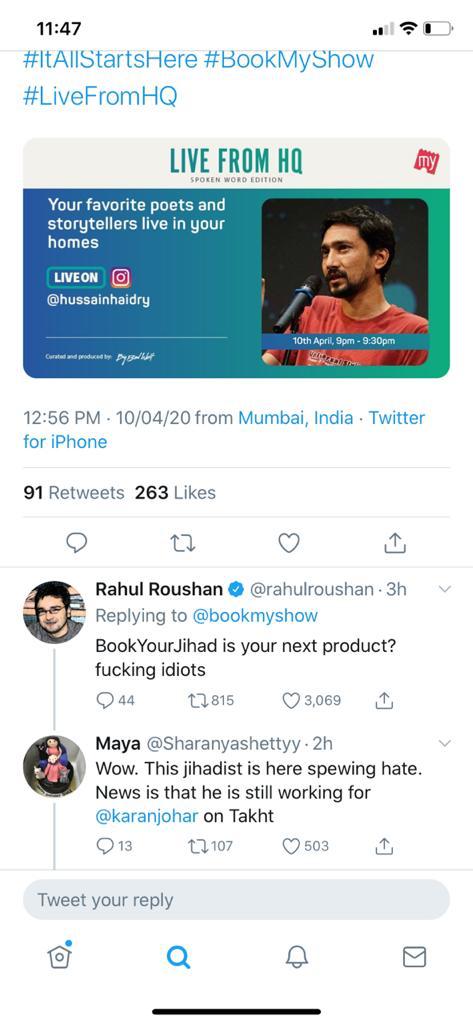
How being vocal engenders social ostracization and cancel culture
Cancelling someone is an organized way of denouncing someone’s credibility. Even for making an argument or to criticize people, the online mob comes with planned propaganda across varied platforms and intensifies hate. This, in turn, deliberately excludes the person from social interaction and is a major part of cancelling culture.
The online mob conveniently spread disinformation, spew hatred.
When Arfa got trolled in a campaign initiated by Kapil Mishra on an anonymous website, he accused her of being friends with Tahir Hussain. The online mob’s agenda was to malign her identity.
There have been depressing incidents where being vocal for the status quo got people to confront familial estrangement and rejection from friends.
“I don’t have any contact with my school friends, apparently I’m being discriminated against for being too harsh,” said Haidry.
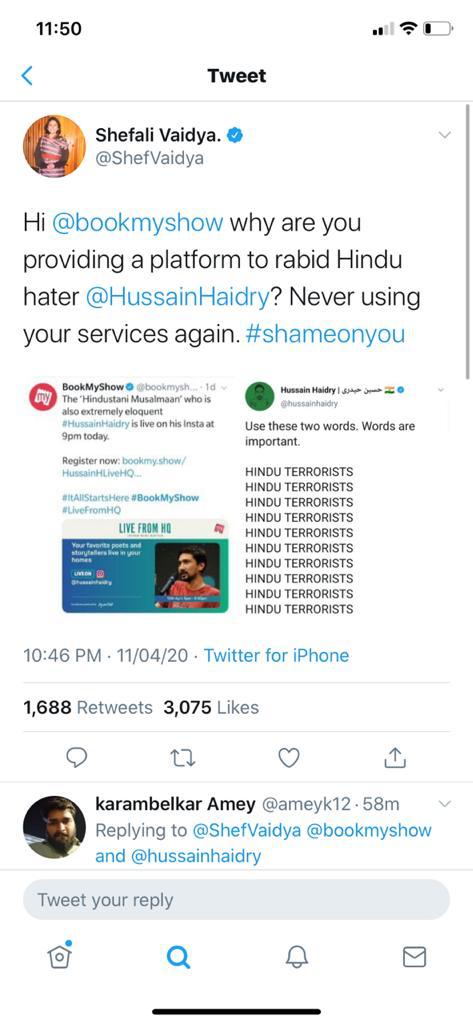
Social ostracization comes with silent rejection in both the virtual and real world.
Nabiya Khan, a poet and activist says, “My best friend thinks I am hateful because of my opinions and regular involvement in protests.”
Getting rape threats for being vocal on social media
Recently, the case of comedian Agrima Joshua underlines the toxic patriarchal conditioning of our society. This is a very suitable example of jobless men casually intimidating women on social media.
Ekabali Ghosh, an M.Phil research scholar and activist, collaborated in a campaign ‘Kolkata for Kashmiris’ after the February 2019 Pulwama attack. “I was trolled badly by the IT cell. I got blatant rape and death threats,” Ghosh told TwoCircles.net.
The spiral of silence theory states how people wish to express their beliefs is dictated by popular and unpopular opinions as those who hold a minority view are often scared of being isolated and threatened.
“The trolls were filled with rape and death threats. People even threatened me via emails and calls,” says Arfa. Subsequently, she was trolled for three days on social media.
Social media is an unpredictable place. One minute you share memes and the next, spew venom.
“There is not a single post or tweet where people don’t abuse me. However, I received horrid abuses and threats on the day of the Ayodhya Bhoomi Poojan ceremony,” says Nabiya.
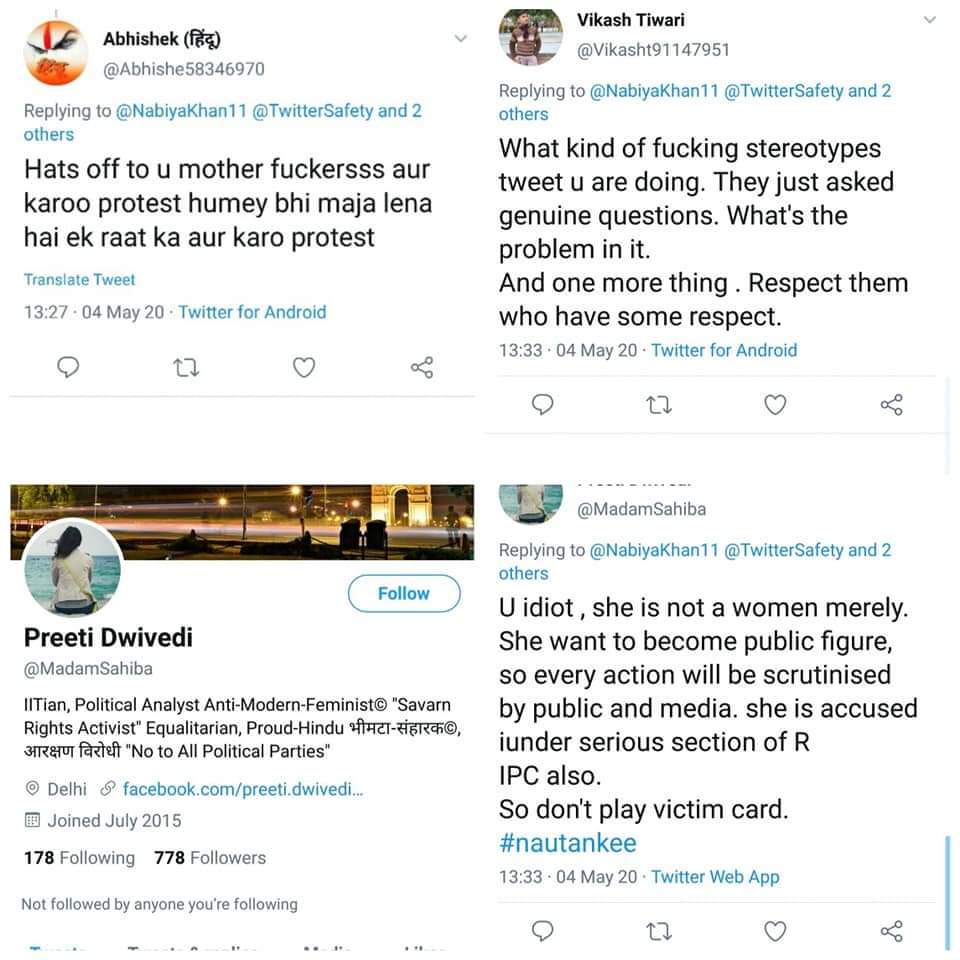
The violent mob mentality
There are plenty of discourses on how rumours turn people into bloodthirsty mobs. The online mob is the extended version of the real-life mob we see around us. The presence of an online mob goes back to the time before social media, where the drawing-room conversations were communal, misogynist, and sexist.
We have always been communal as a society. We now have a better way to show this venom and get away with it.
Meghnad says, “There are political connections to it. When in a rally a politician shouts ‘Desh ke gaddaro ko goli maaro saalon ko’ he knows that he will get the validation he seeks for his viciousness.”
A powerful mechanism keeps fuelling the mob mentality because divisiveness and hate is the easiest thing to unite people over. Besides, a lot of individual trolls are working on the behest of various power mongers.
Revati Laul, an independent journalist says, “Recently when a book on Delhi riots, that seemed to be a PR job of the perpetrators was released, it created a furore. The book was withdrawn. So it’s not that there is zero reverse pressure.”
Meghnad added, “If I am talking about the Delhi riots you can’t come and ask me about where were you when the Kashmir genocide happened, I respond to them by saying I was one and a half year old.”
The online attacks have been intensified over the years. The trolls know that they will never be held accountable for the harm they do because of the vested political interest of the power mongers.
Effect of trolls on mental health
The devastating consequences of the trolling coerce a person to feel dissatisfaction and feelings of anger and irritation. “I had sleepless nights. It comes with trauma and depression. In my case hardly two people called me to ask and this is disheartening”, says Haidry.
The results of trolling can be fatal and sometimes it drives vulnerable people to suicide also. Trolling lead to traumatic experiences and lowered self-esteem.
Meghnad says, “As a person on the receiving end it affected my mental health to an extent that I turned off my phone. I had an anxiety attack. I thought it to be very real to me and later I realized it’s not.”
The online trolls are driven by sinister motives and are part of a strategy where if one speaks against the regime is bullied.
“The phenomenon of trolling is a part of a strategy to undermine the politics that challenges majoritarianism. How different people react to it depends on them,” says Revati.
Coping mechanism
Online trolls provide anonymity and leeway to be heinous and toxic. The coping mechanism in the matter of trolling and bullying is an interpersonal and cataclysmic process for people who experience it.
“I am getting used to this. Indeed constant threats do unsettle you, but then some friends are always there to inspire and keep me driving,” says Nabiya.
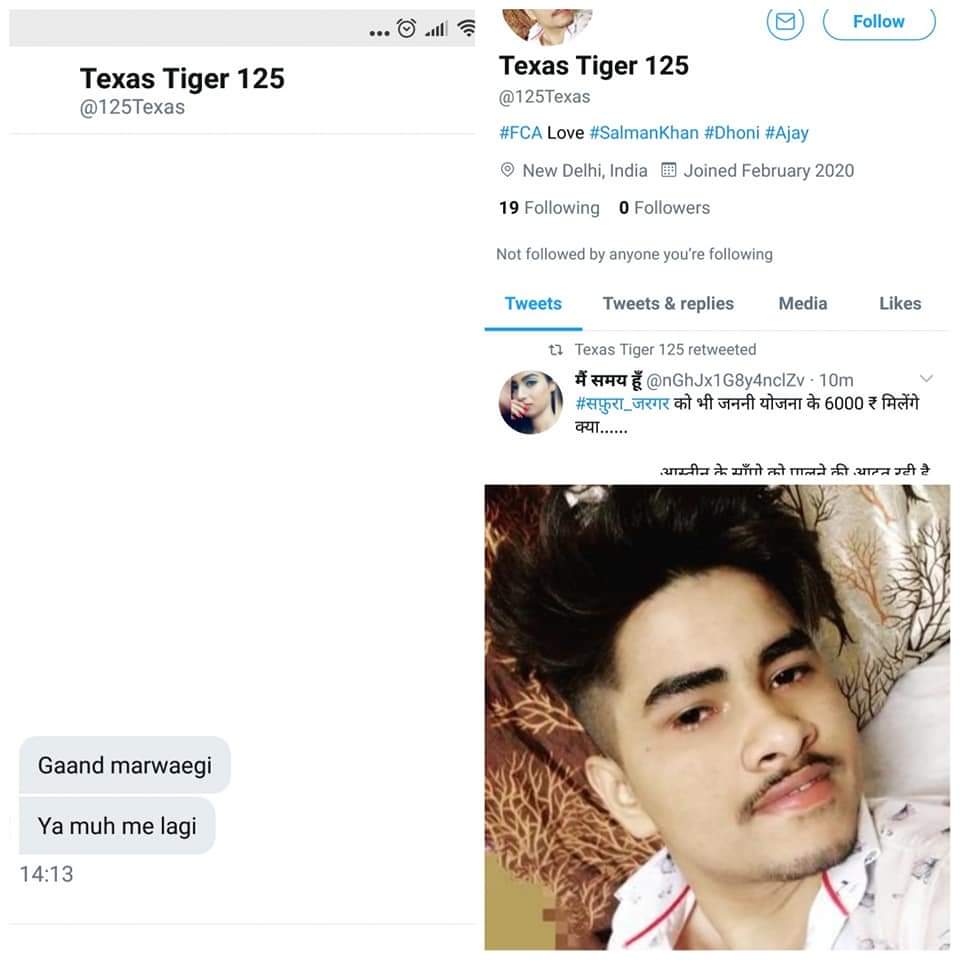
Trolling women is an extension of the misogynist and patriarchal society we live in. Women being harassed, abused and trolled is an attempt to silence their voices.
“I was depressed and got physically ill. When I had put this up on social media, people started laughing. Then, I stopped engaging online,” Ekabali said.
Coping from online trolls is isolating and exhausting. If you choose to speak against the regime or disagree about something, chances are high that you will get more brickbats.
This kind of situation forces us to wonder, is this new kind of normal we have to accept or is there a way forward to better times?

